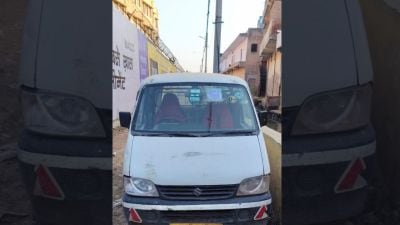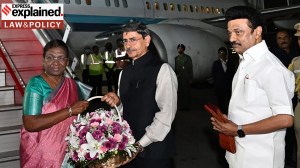Centre paves the way for GST,introduces Bill in Lok Sabha
Bill seeks to amend Constitution to confer simultaneous powers to Centre and states.
Despite vocal opposition from many state governments,the Union government on Tuesday introduced a Constitution Amendment Bill in Lok Sabha to pave the way for Goods and Services Tax (GST) that seeks to subsume most of the indirect taxes and levies at the Centre and states.
The Bill is the fourth draft prepared by the Centre,where it has tried to accommodate many of the concerns of the states. It is a hybrid of the second and third draft and seeks to amend the Constitution to confer simultaneous powers to the Centre and states to levy taxes on both goods and services.
The GST would replace a number of indirect taxes presently being levied by the Central government and state governments and is intended to remove cascading of taxes and provide a common national market for goods and services, said the Statement of Objects and Reasons of the Bill. However,crude petroleum,diesel,petrol,aviation turbine fuel,natural gas and alcohol for human consumption have been kept out of the GST ambit.
It is now expected to be referred to the Parliamentary Standing Committee for scrutiny,which will also take into account suggestions of state governments.
The Bill provides for creation of a GST Council,which is to be constituted by the President and will be headed by the Union finance minister while the minister of state for revenue will be the vice chairperson. All state finance ministers will be its members. The Council will be empowered to recommend tax rates and exemption and threshold limits for good and services. Every decision of the GST Council taken at a meeting shall be with the consensus of all the members present at the meeting, the Bill said. In addition,a GST Dispute Resolution Council will also be set up to address any issues arising between the Centre and the states or between two states. The new draft has proposed that the Council would be headed by either a retired or a working High Court or Supreme Court judge who is appointed by the Chief Justice of India. It would also have two additional members who can either be tax experts,economists,judges or civil servants.
As the Bill seeks to amend the Constitution,it needs two-thirds approval by both houses of Parliament as well as ratification by at least 15 state assemblies. However,a few states,mainly those ruled by the BJP,continued to oppose the existing GST structure and the last meeting of the Empowered Committee of state finance ministers proved to be inconclusive.
But Sushil Modi,deputy chief minister of Bihar told The Indian Express,The opposition is not only from BJP-ruled states. There are state-specific grievances. For instance,Bihar is in favour of GST,while Tamil Nadu ruled by Congress allies has opposed it. Whatever issues are still unresolved can be worked out with the standing committee or at time of discussion in the Parliament.
To ensure its timely rollout,Mukherjee has tried to reach out to state governments and said that he was willing to go an extra mile to ensure that the deadline is not extended yet again. The government is now looking at a deadline for GST rollout sometime after 2012.
Budget tax proposals
Auto kits: Basic customs duty halved to 30% on completely knocked down (CKD) kits containing a pre-assembled engine,gear box or transmission assembly,imported for manufacture of vehicles
Garment sector: Excise duty exemption to unsold readymade garments returned to manufacturer not exceeding 10% of total clearance in preceding fiscal
Excise duty @ 1%: For the 130 items brought under excise duty of 1%,tax to be levied on retail sale price with an abatement of 35%. Exemption to waste,scrap
Computers: 5% countervailing duty and nil special additional duty (SAD) on computer printers imported by actual users. Also seven specified parts of persona computers exempt from SAD.
New Pension Scheme: Contributions by employers to NPS exceeding Rs 1 lakh to be exempt from income tax.
Coal: Exempt certain types of coking coal imported for the manufacture of iron or steel from customs duty
Service tax: Point of Taxation rules to be partly reviewed and taxpayers to be given an additional three months till July 2011 for transition.
Photos


- 01
- 02
- 03
- 04
- 05





























